SUMMARY
This is AI generated summarization, which may have errors. For context, always refer to the full article.
The Department of Justice (DOJ) under Secretary Menardo Guevarra is in the center of a so far successful effort to shield the Duterte government from international investigations of human rights violations.
Local human rights groups blasted the latest resolution of the United Nations Human Rights Council (UNHRC), saying that it was a “letdown” and with much “disconnect to the reality on the ground.”
Instead of launching a proper investigation into extrajudicial killings (EJKs) related to the war on drugs or otherwise, the UNHRC offered “technical assistance” to domestic efforts of the Philippine government – much of it involving the DOJ.
“Too weak, too little, too late,” said Senator Leila De Lima of these efforts through her chief-of-staff Fhillip Sawali, who was part of a joint press conference of human rights groups on Thursday, October 8.
Much of the DOJ efforts were done only in 2020, the latest being an agreement with the Commission on Human Rights only last September.
The UNHRC “recognized” the following government efforts:
- DOJ-led drug war review panel which will reinvestigate the 5,655 deaths in legitimate police anti-drug operations. Created June 2020.
- Data-sharing agreement between DOJ and the Commission on Human Rights (CHR) for EJKs outside the drug war. Signed September 2020.
- The National Justice Information System (NJIS), a centralized database on prisoner’s data and other prosecution data. Signed January 2020.
- Justice Zones, a collaborative effort of the Supreme Court, DOJ and Department of the Interior and Local Government (DILG) to strengthen coordination between justice-related agencies. It is a rolling project.
“It is a tricky assuagement to appease the cries for justice of the victim. But we maintain that the domestic remedies in the Philippines are by and large ineffective, protracted, ponderous, skewed and even frustrating to the victims,” said Edre Olalia, president of the National Union of Peoples’ Lawyers (NUPL).
No data sharing in drug war panel
In mid-September before he resigned, Justice Undersecretary Markk Perete was set to give an update on the drug war review panel which the DOJ promised would present conclusions by November. Perete never got the chance to give the update.
Guevarra told reporters on Wednesday night, October 7, to “give them a little time,” as they would have to “pick up where (Perete) left.”
Guevarra said they were currently prioritizing the Implementing Rules and Regulations (IRR) of the anti-terror law because “its deadline is earlier.” The law required the DOJ to promulgate an IRR 90 days after the July 18 effectivity which meant mid-October.
“I will get this technical cooperation with the UN on human rights going, as well as the review panel on drug operations resulting in deaths, before we publicly discuss them,” said Guevarra.
“It’s better to talk about things that are already being done than about mere plans or proposals,” Guevarra added.
UN High Commissioner for Human Rights Michelle Bachelet said she was “seeking details” on this review panel “so we can advise and assess the review panel’s scope, process and efficacy.”
Guevarra said Bachelet has not sent any formal request to the DOJ.
Guevarra also confirmed that the data-sharing agreement between DOJ and CHR, which the UN resolution recognized, did not cover the war on drugs. The agreement is confined to the Administrative Order 35 or AO 35 task force that probes politically-motivated killings outside of the drug war.
The CHR has long complained of lack of access to case folders of drug war deaths. Asked if the DOJ plans on having a data-sharing agreement on its drug war review panel, Guevarra said: “I will have to consult the member law enforcement agencies about it.”
Updates on other efforts
During his DOJ stint, Perete said the justice department hoped to establish heat maps of EJKs as part of the AO 35 task force. The overall idea was to weed out patterns, hoping to prevent more killings. Perete said they were on track.
Asked for an update, Guevarra said: “We’ll let you know when it’s ready. We’re still turning over (Perete’s) responsibilities to other undersecretaries.”
Human rights groups doubted the efficiency of the AO 35 task force, because DOJ’s own data showed that in the 7 years of its work, it has only 13 convictions out of 385 cases it has handled. Of these, 127 perpetrators have been cleared.
As for the NJIS, the DOJ was only starting to digitize the actual data it would input to the system as of January 2020. Guevarra had no update yet. “I will check,” he said.
The Justice Zones are a project of the inter-branch Justice Sector Coordinating Council (JSCC) with funding from European Union. A justice zone is not an infrastructure but a coordinating mechanism to ease communication between police, prosecutors, courts and jails.
There are currently only 6 justice zones nationwide. Guevarra was unable to say whether there is a 7th on the horizon. “I will check with the JSCC,” the secretary said.
Are the government efforts a good thing or a bad thing?
For the human rights groups, the efforts are an attempt to “temper or mollify and perhaps even preempt the upcoming action by the International Criminal Court in order to escape international censure and responsibility,” said Olalia.
The UN resolution saw these in a positive light, saying it “takes note of the government’s efforts to further broaden positive engagement with the United Nations system.”
That is also what Guevarra said when he announced the creation of the drug war review panel in June. He said the panel would “not only reinforce accountability on the drug campaign, it will tighten the web on existing mechanisms to prevent cases of impunity.”
Guevarra also admitted that the creation of the panel was meant to screen the Philippines from an ICC investigation. “It underpins our strong position against calls for an independent investigative mechanism including the one made before the International Criminal Court (ICC) from which we have withdrawn,” Guevarra told the UNHRC in June.
Is there a deadline for the government to show concrete results of the efforts? There was no clear answer. President Rodrigo Duterte has two years remaining in his term.
The UN resolution stated that Bachelet would continue to engage with the government. The UNHRC would present an oral update to the human rights council’s 48th session in 2021, and submit a report at the 51st session in 2022.
Human Rights Watch deputy UN director Laila Matar said that the resolution makes it also clear that the Philippine government was “not off the hook and will face continued examination.”
ICC Prosecutor Fatou Bensouda will decide this year whether or not she will open a formal investigation into the Philippines. – Rappler.com
Add a comment
How does this make you feel?



![[Just Saying] Diminished impact of SC Trillanes decision and Trillanes’ remedy](https://www.rappler.com/tachyon/2024/04/Diminished-impact-of-SC-Trillanes-decision-and-remedy.jpg?resize=257%2C257&crop=273px%2C0px%2C720px%2C720px)
![[Rappler Investigates] Son of a gun!](https://www.rappler.com/tachyon/2024/03/newsletter-duterte-quiboloy.jpg?resize=257%2C257&crop=450px%2C0px%2C1080px%2C1080px)
![[OPINION] ‘Some people need killing’](https://www.rappler.com/tachyon/2024/04/tl-some-people-need-killing-04172024.jpg?resize=257%2C257&crop_strategy=attention)
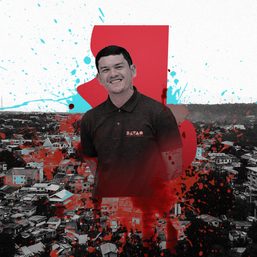
![[EDITORIAL] Hustisya sa Jemboy case: Tinimbang ka ngunit kulang](https://www.rappler.com/tachyon/2024/03/animated-jemboy-baltazar-killing-verdict-carousel.jpg?resize=257%2C257&crop=257px%2C0px%2C720px%2C720px)
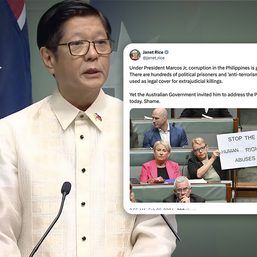
![[OPINION] In the Philippines, the fight for the climate is a fight against state violence](https://www.rappler.com/tachyon/2024/02/imho-contexualizing-state-violence.jpg?resize=257%2C257&crop=265px%2C0px%2C720px%2C720px)
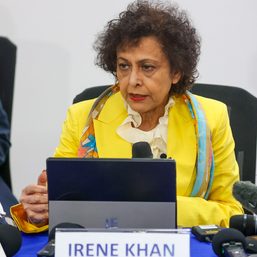

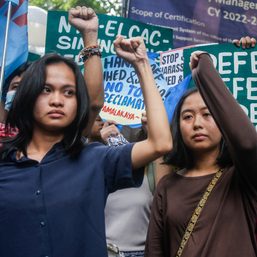

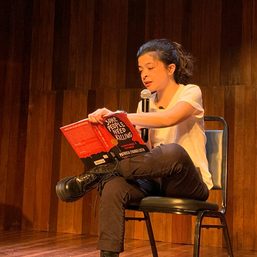
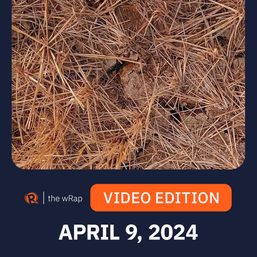
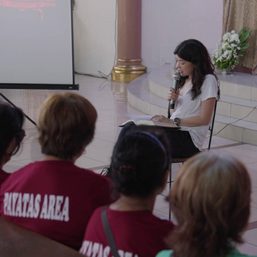
There are no comments yet. Add your comment to start the conversation.